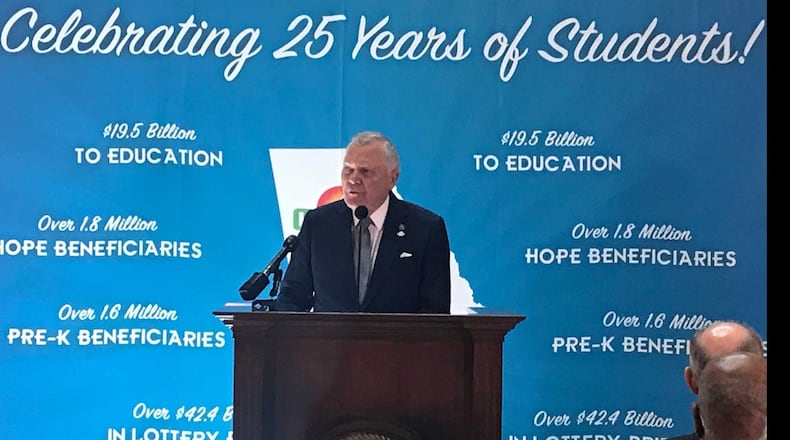Gov. Nathan Deal stood in the statehouse Tuesday to announce a first-of-its-kind $100 million mass transit investment and pointed toward a future when such spending doesn't feel so revolutionary.
A day later, he stood in the same spot to talk about another political shift that once seemed unthinkable but is now deeply woven into the fabric of the state.
It was the 25th anniversary of the first sale of a Georgia Lottery ticket, and the Republican governor reflected on the arduous political journey needed to forge the lottery-funded HOPE scholarship. That 1992 vote needed two-thirds support before it could get on the ballot – an iffy prospect at best.
Back then, Deal was a high-ranking Democratic state senator who was already angling for a U.S. House seat in a conservative district. And religious groups, casting the lottery as gambling, were pressuring lawmakers to oppose the measure at all costs. Deal was one of the biggest skeptics.
“I wrestled with the issue, as did many people in the General Assembly,” he said. “And I finally decided I shouldn’t let my personal conviction take away the opportunity for the general public on the issue.”
He voted for the constitutional amendment, which wound up passing the Senate by a healthy margin and was narrowly approved by voters on the November 1992 ballot.
The ceremony was a poignant one. Lottery officials and higher education administrators touted the benefits of the scholarship, which has helped more than 3 million pre-K and college students. Several spoke with quivering voices about HOPE’s life-changing impact.
And the governor, too, grew emotional talking about how he was glad he swallowed his doubts.
“I’m glad my skepticism proved wrong,” he said. “I’m glad the people of Georgia got to be the real deciding factor.”
About the Author
The Latest
Featured




